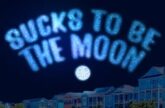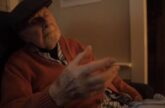Captions provided by CCTubes – Captioning the Internet! Everything that you’ve been told about sleep is more or less wrong. Today we are going to bust some of the most common myths about sleeping.
We all need it, and most of us could use more. We’re talking about sleep. It is estimated that we spend about 1/3 of our lives sleeping, yet it remains a mysterious process. Night after night, we shut down for several hours during sleep, and everything from hormone release to tissue repair goes on in our bodies without us even noticing it. Our brains generate dreams that many of us can hardly remember or make sense of. There are also nightmares, sleep disorders, and so much more. “We still have so much to learn about why we sleep, and how sleep works,” writes clinical psychologist Michael J. Breus in a Psychology Today article. Because there is still so much that is unknown about sleeping, it is understandable that myths about sleep have emerged over the years. We will discuss some of these myths in this episode of The Infographics Show, “12 myths about sleep that you didn’t know.”
If you like this video, check out some of these videos:
Relaxing Sleep Music: Deep Sleeping Music, Relaxing Music, Stress Relief, Meditation Music
https://www.youtube.com/watch?v=1ZYbU82GVz4
How to Fall Asleep in 2 Minutes According to the US Navy
https://www.youtube.com/watch?v=g1CWinr5AkI
What Makes Sleep Paralysis So Terrifying?
https://www.youtube.com/watch?v=e1sCa5Tu1fs
There has been much debate over who is better off in life – early risers (“larks”) or late risers (“night owls”). It turns out that your health and success in life are not determined solely by what time of the morning you get up. According to a BBC article, there is a study that “showed that night owls are as healthy and wise as morning types – and a little bit wealthier.” Examples of successful night owls include Buzzfeed CEO Jonah Peretti, author James Joyce, and Winston Churchill.
And not everyone is meant to be an early riser. What determines whether you are or not is something called a chronotype. Sleep expert Dr. Colleen Carney describes it as a “’sleep window inside of us.’” She explains that “’it is genetic” and “developmental factors” also play a role. For instance, young children tend to go to sleep earlier and rise earlier, but the internal sleep clock shifts in puberty so that teenagers want to sleep later and rise later.
#11. Getting less than 8 hours of sleep a night is bad for you.
While some people need 8 hours of sleep to feel refreshed, other people can get by with a little less sleep. You might even live longer if you sleep a little less. However, the NHS cautions that sleep needs vary by age and other factors, so don’t think you are more likely to die early if you “do not follow the ’standard’ pattern for sleep.”
#10. When you wake up at night, you lose sleep for only the amount of time you were awake.
Getting up for even 15 minutes in the middle of the night can cause you to wake up feeling tired. As anyone who has cared for a newborn can tell you, you will feel even more fatigued if you wake up several times a night. According to one source, a 2014 study of people who had 8 hours of interrupted sleep and those who had only 4 hours of sleep showed that “the mood and attention of folks with interrupted sleep were just as bad as those who slept for only four hours.” Depression and irritability were common in both groups, and their ability to perform an attention task “got worse the longer they kept at it.”
SUBSCRIBE TO US -► http://bit.ly/TheInfographicsShow
————————————————————————–
WEBSITE (SUGGEST A TOPIC):
http://theinfographicsshow.com
SOCIAL:
Twitter……..► https://twitter.com/TheInfoShow
Subreddit…► http://reddit.com/r/TheInfographicsShow
————————————————————————–
Sources for this episode:
https://pastebin.com/StFV1pzp














